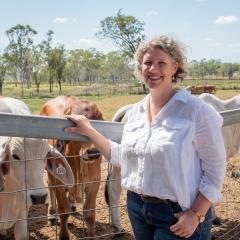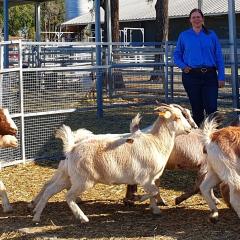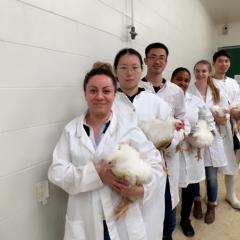How did you get started in livestock research?
During my Vet Science degree, I did a few internships in cattle farms and just loved the whole thing - it is a meaningful activity, part of food security and it was far away from Sao Paulo city traffic jams! Also, most cattle farms in Brazil were still using horses, and riding them was part of the job.
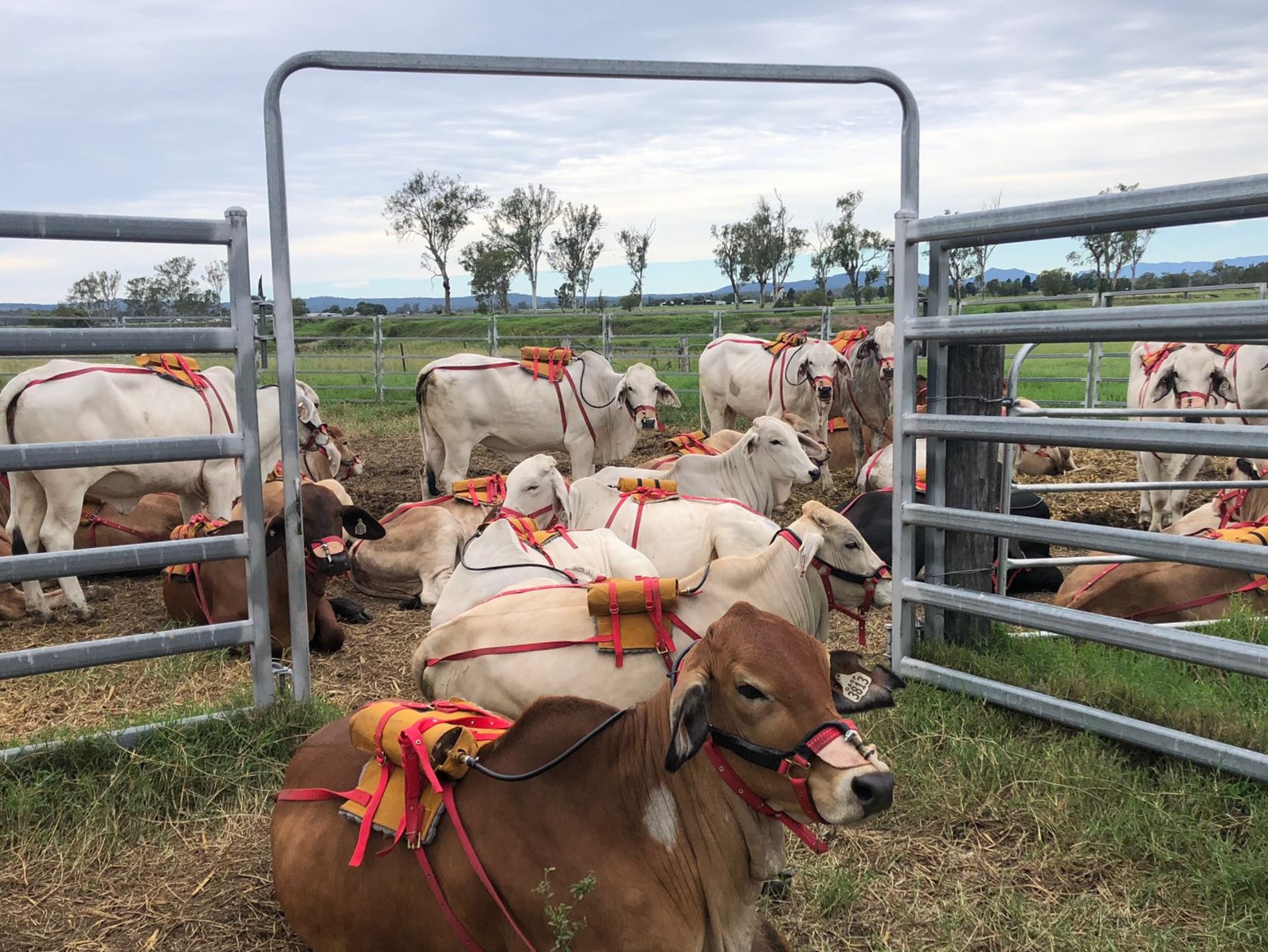
Briefly describe the current project you are conducting at QASP:
We are looking at the effects that pregnancy has on metabolism, the rumen microbiome, and consequently on methane emissions. We are comparing pregnant to non-pregnant heifers at various stages of pregnancy to evaluate the impact that pregnancy has on the levels of methane that are emitted. The data we are collecting will inform future carbon modeling and potentially impact the whole beef industry. Our end goal is to help create a sustainable beef industry in Australia.
How do QASP staff and facilities help you in achieving your research aims?
QASP staff and facilities are essential! It is a safe place for the 40 heifers to graze, husbandry practices are easy because the infrastructure is there. The staff approach to handling and training the animals made the experiment possible: for this trial the heifers have to wear a backpack and a halter! It is an expensive methane measurement gear that is not easy to replace. So, getting the heifers habituated to the gear was a challenge and a concern that we had from the beginning. QASP staff were very helpful in training the animals and we had a successful measurement period because of their work!
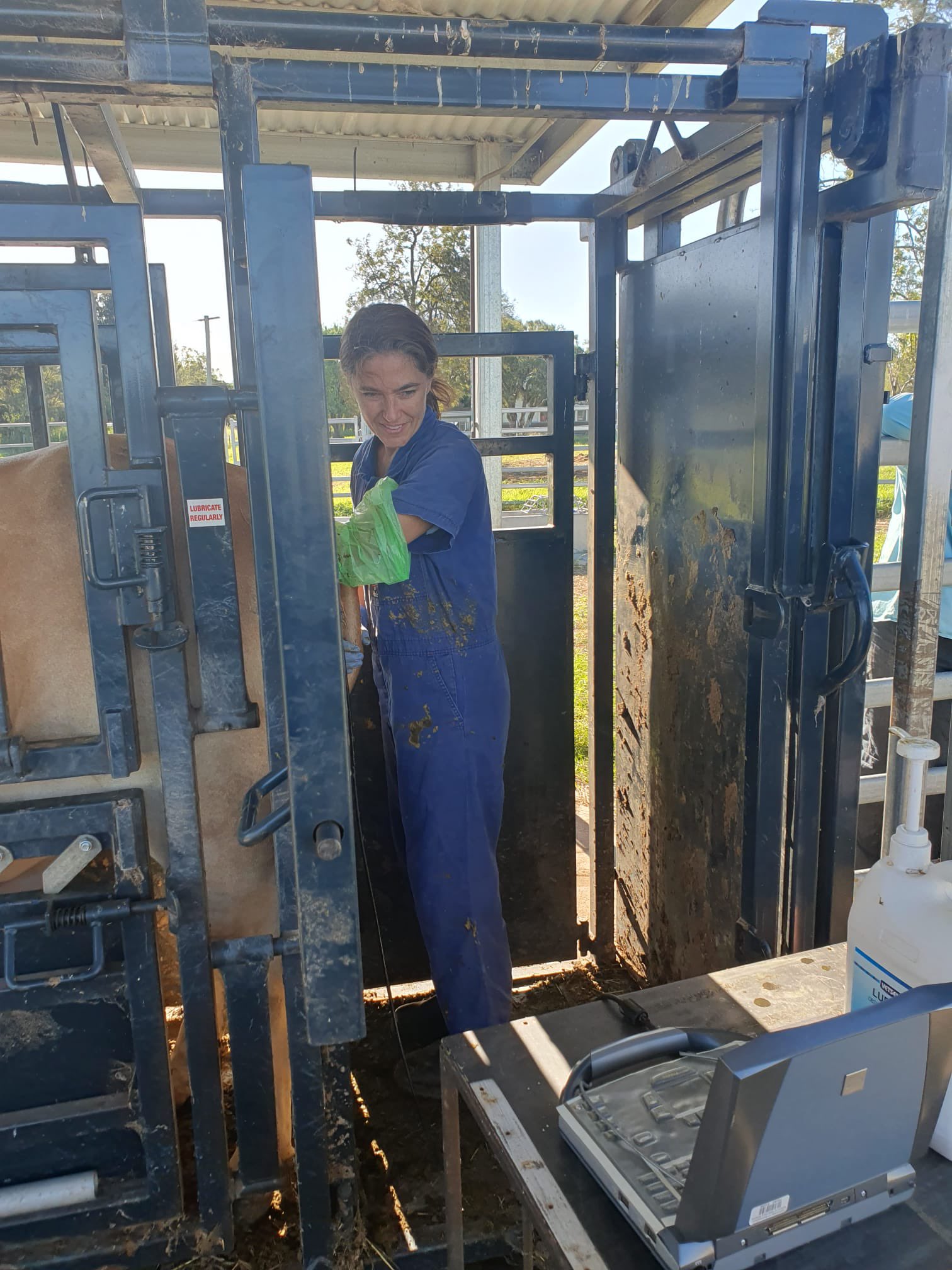
What is your favorite aspect of your line of work?
This is a difficult question! I love the field trial, with all its hard work and challenges, including the smell of cow poo. I love the data analyses that come after. I get a great sense of achievement when I see the Ph.D. students involved in the trials and learning. Research is many things, and it is never boring.
What career advice would you give to your younger self?
Allow more time for thesis writing. Write as you go. Because fitting all the chapters together and writing the discussion in 2 months meant 14-hour days on the computer and a lot of back pain!
Fun question: Describe the most exciting activity that is on your bucket list?
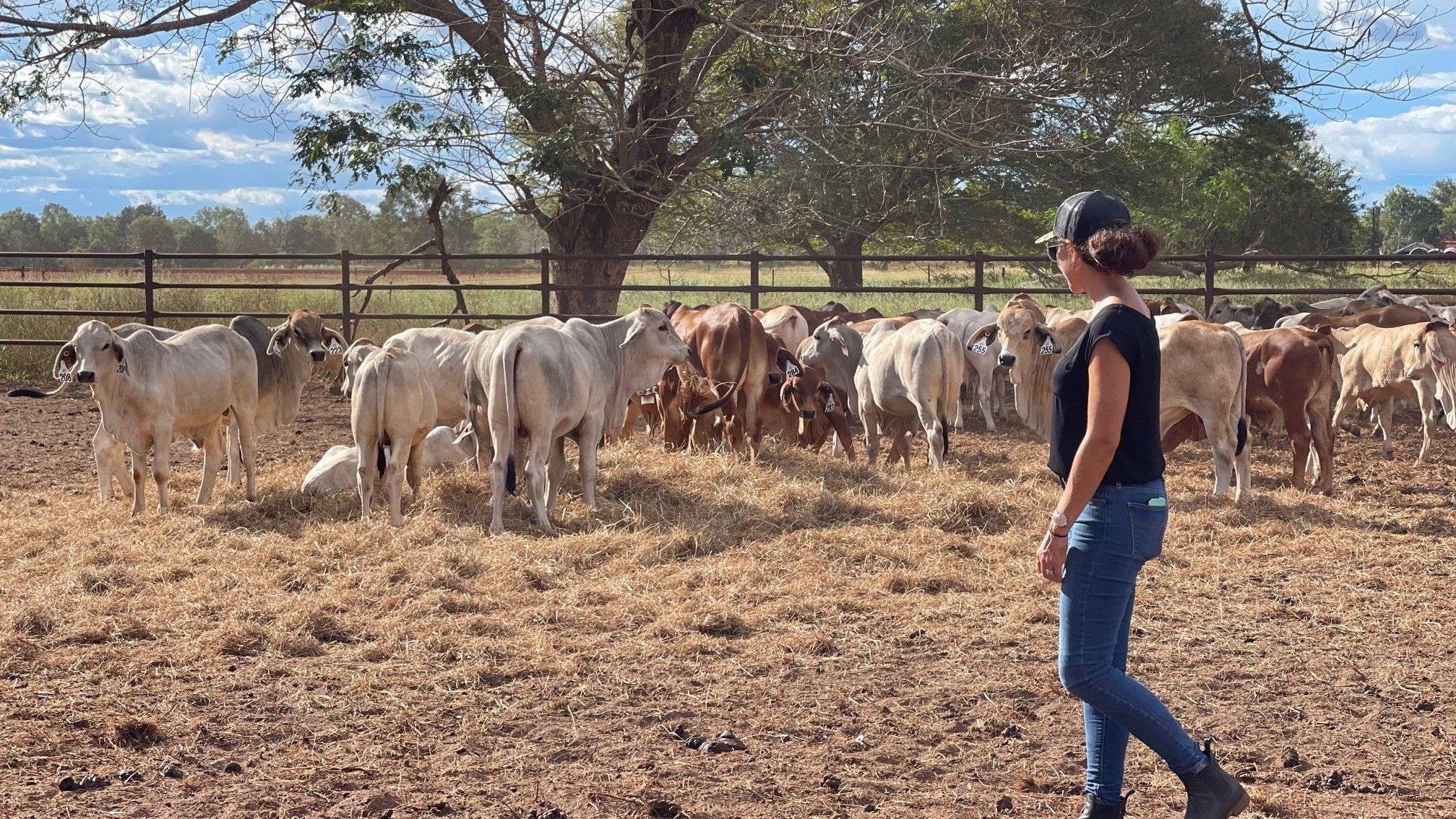
I don’t think I have a bucket list, but this July we are going to South Africa for a conference (ISAG 2023) and I am making sure we also have a couple of days for a safari! My 9-year-old is coming with us and she loves animals (just like her parents).
View Marina's profile on UQ's Researcher database for a full list of her research projects and publications.

